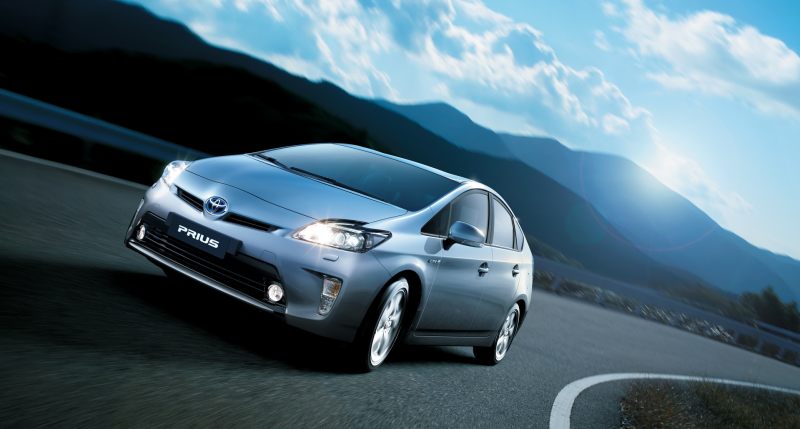
Electric cars reduce emissions and operate on a cheaper cost, so why aren’t we all driving one?
The main argument against electric vehicles is that the charging infrastructures require improvements and charging times need to be shortened. For a plug-in hybrid car, like the Chevy Volt, charging time – from empty to full – is approximately 10 hours from a 120-volt socket. If electric car manufacturers are unable to reduce the time it takes to charge a car, then this greener option will have a hard time replacing conventional vehicles.
However, Yoshikazu Tanaka, chief engineer of the Toyota Mirai, a hydrogen fuel-cell car, disagrees. He explains that speedy charging times may in fact defeat the sustainable purpose of electric vehicles.
“If you were to charge a car in 12 minutes for a range of 500 km (310 miles), for example, you are probably using up electricity required to power 1,000 houses,” Tanaka says. “That totally goes against the need to stabilize electricity use on the grid.”
While it’s evident that electric cars are doing a lot of good for our environment and our wallets, there are clear obstacles. In this article we’ll look at the hurdles electric vehicles face and the reasons why we shouldn’t write them off.
Obstacles
1. Range Anxiety
It depends on the vehicle, but on average most fully charged electric cars could only travel between 80.5 and 128.7 km (50 and 80 miles). Pricier, sportier versions, such as the Tesla Model S, can get up to 482.8 km (300 miles). It’s generally true that most people travel less than 80.5 km a day. Nevertheless, the limit and the need for charge will keep drivers from long trips.
2. Long Charge Time
Coupled with range anxiety are long charging times. An hour of charge from a 240-volt source averages 32.2 km of range. If you forget to plug your vehicle in at the end of the day, you may be in big trouble in the morning. You cannot run to the gas station with a jerrycan. With electric vehicles, planning ahead becomes ever more important.
3. Lack of Infrastructure
When choosing a conventional vehicle, you don’t have to worry about charging stations. There is an abundance of gas stations in all urban areas. However, with electric vehicles, drivers will need to be conscious of where charging infrastructures are located. In New York, there are 35 gas stations, but only 11 charge stations in a 10-mile range. Nissan ChargePoint is a resourceful option to location charging stations in North America. But even though information is available freely, it doesn’t change the fact that there are far more gas stations than charge points.
4. High Cost
Electric cars are significantly more expensive than vehicles with internal combustion engines. The 2015 Toyota Prius has an MSRP of $26,305, while the 2015 Toyota Prius Plug-In has an MSRP of $35,905. Even with tax incentives and a lower operative cost, the initial price for an electric vehicle is substantially higher.
5. Superior Competitors (Hydrogen cars)
Touted as the future of the automotive industry, electric motors with fuel cells filled with liquid hydrogen are able to work by emitting only water. While hydrogen cars have their own hurdles – cost and infrastructure – they are still going to give electric vehicles some headaches as they contend for the same core market.
Reasons for Success
1. Range Isn’t as Bad as People Think
While ranges for electric vehicles have their limits, they aren’t all that bad. Since nearly all people drive below the 160-km (100 miles) mark in a day, an electric car with a capacity to take a driver 128 km on one go will surely be enough. For urban drivers, most necessities are within that limited radius. As long as you charge every night, you should be fine.
2. Electric Power Comes from a Variety of Sources
A conventional car requires gasoline, but an electric one can get fuel from numerous sources. One way is from a grid that’s connected to a charging unit. Another is from stationary batteries that take longer to charge, but can be installed and removed quickly. Solar panels and generators can also be used to charge electric vehicles.
3. Electric Cars are More Environmentally-Friendly
Because electric cars don’t burn gasoline or other fossil fuels, they produce no carbon emissions. Also, electric cars require little to zero hazardous fluids that may pollute the environment, such as motor oil and antifreeze.
4. Electric Cars are More Efficient
Traditional gasoline-consuming vehicles are only able to convert approximately 17 to 21 per cent of energy from the fuel into powering the wheels. Electric cars perform much better by converting 59 to 62 per cent of energy from the grid to power and turn the wheels. On top of that, it does it all quietly.
5. Prices are Decreasing
The declining price of electric vehicles is partially due to poor sales and lower gas prices. If there is a time to invest in an electric car, it’s now. While the number of sales have gone up, the overall numbers of electric cars sold are not that high. As the market continues to squeeze manufactures, it may be inevitable that the prices for electric vehicles will continue to decrease.
6. Tons of Government Incentives
The Canadian government is also offering incentives to environmentally-conscious car buyers. In BC, for instance, drivers with electric vehicles are eligible for a rebate of up to $6,000. In Ontario, drivers can receive up to $8,500 when purchasing or leasing an electric vehicle and an additional $1,000 if they install a charging station.
For more information on a specific electric vehicle, consult our free dealer cost report or explore various deals on this page.






